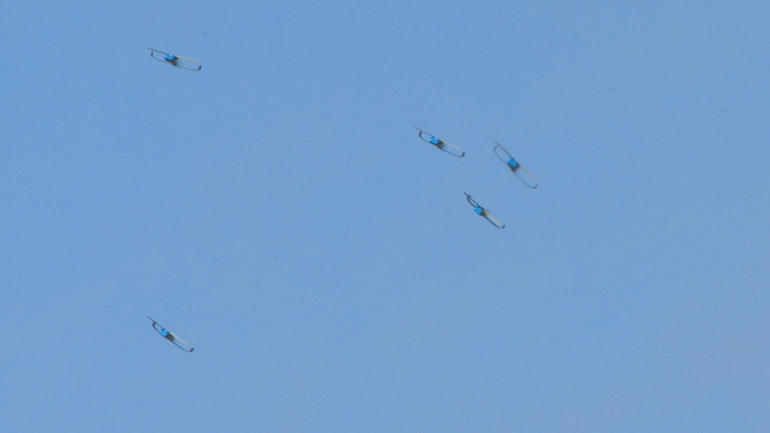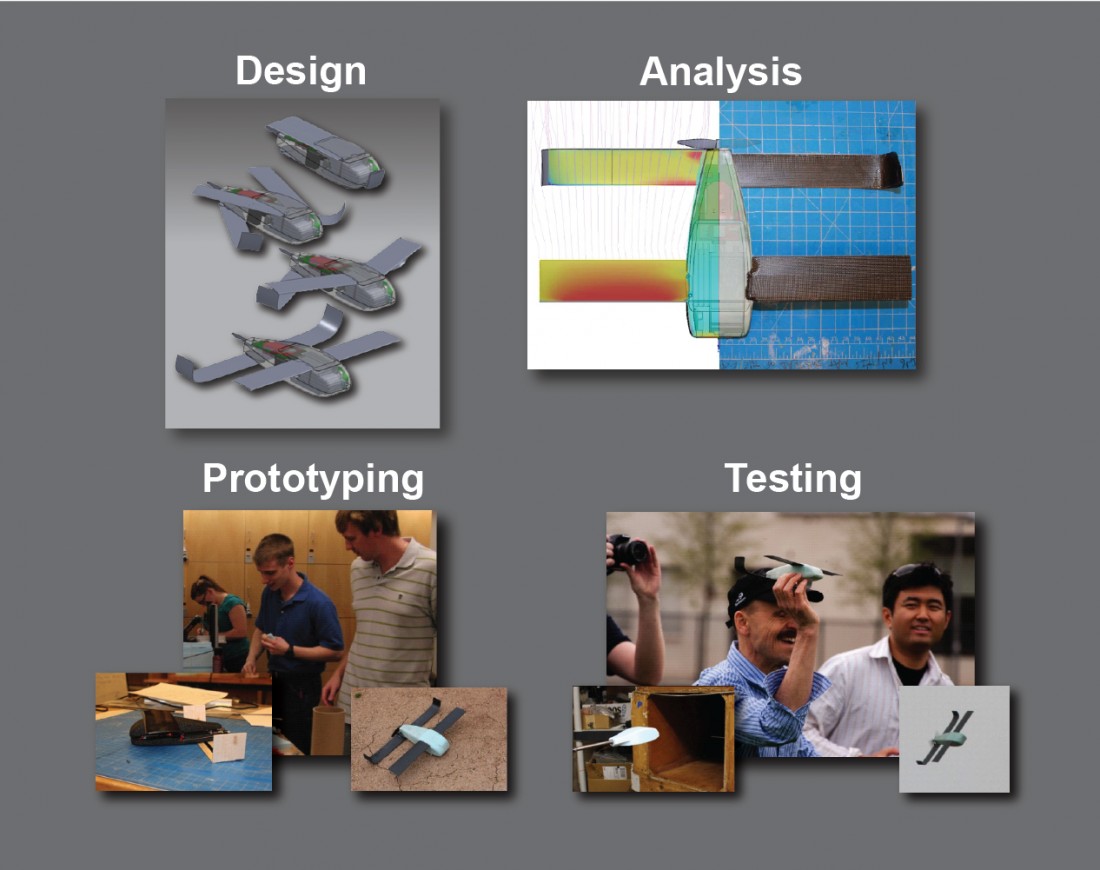The US Department of Defense has created a swarm of 3D printed autonomous micro drones that can fly together in formation. Known as Perdix, the drones were developed by the Strategic Capabilities Office (SCO) with a reported budget of $20 million.
Perdix drones were originally designed by researchers at MIT and 3D printing was utilized to provide fast iteration of design and also lower production costs. With Project Perdix the main aim is to create a swarm that can be released from a fighter jet travelling at high speed.

Drones on the horizon
The US military has since released details of the drone swarm in the form of a video. The clip showed testing of 103 Perdix drones released from three F/A-18 Super Hornets. Once deployed, the Pedrix drones display their decision-making skills and ability to fly together to reach certain waypoints. The drones are contained in the fighter jets’ flare dispensers and released at speeds of Mach 0.6.

“Collective organism”
William Roper of the Department of Defense’s SCO explained how autonomous the drones are,
Perdix are not pre-programmed synchronized individuals, they are a collective organism, sharing one distributed brain for decision-making and adapting to each other like swarms in nature. Because every Perdix communicates and collaborates with every other Perdix, the swarm has no leader and can gracefully adapt to drones entering or exiting the team.

In the video released by the US navy, the drones can be seen navigating to a selected waypoint as a swarm. As Roper explains, this is not a pre-planned mission and the drones have special sensors to mitigate colliding into one another. Perdix will be given a mission and collectively decide the best way of executing it before attempting a soft landing. The Department of Defense has not disclosed the planned use of the drones, but the potential for the aircraft is clear. The drones could be used to jam enemy radar and for surveillance.

Future of warfare
We’ve seen how the US military has tested the use of drones with the Defense Advanced Research Projects Agency (DARPA) exploring cardboard deployable drones. This project similarly evaluates the possibility of a swarm of drone devices. DARPA is also developing larger-scale military aircraft in the form of the TERN drone. Its clear the US Military views drones as particularly important in the future of warfare.
If you haven’t already, make sure to place your vote in the 3D Printing Industry Awards.
For the latest 3D printing news, sign up to our newsletter and follow us on twitter and Facebook.
Featured image shows the Pedrix drone. Photo via CBS News.



